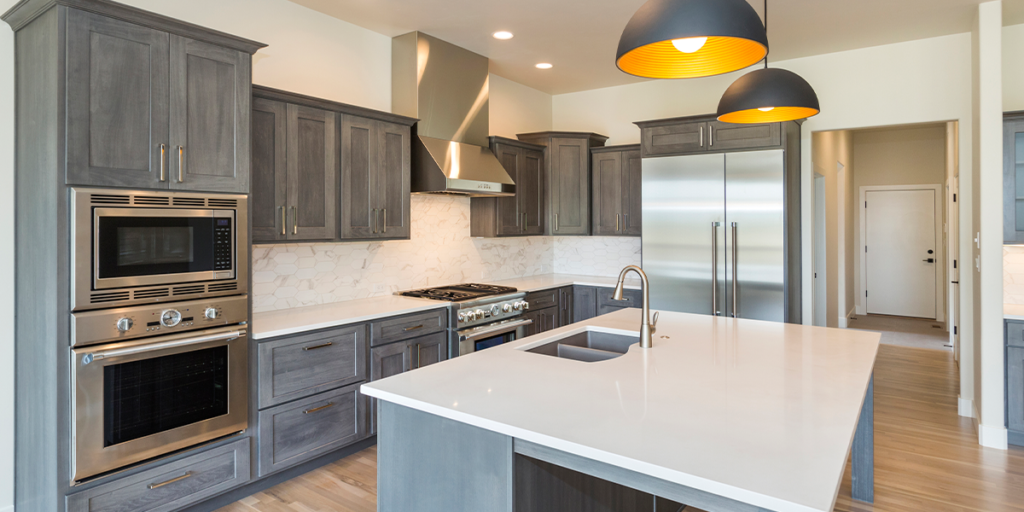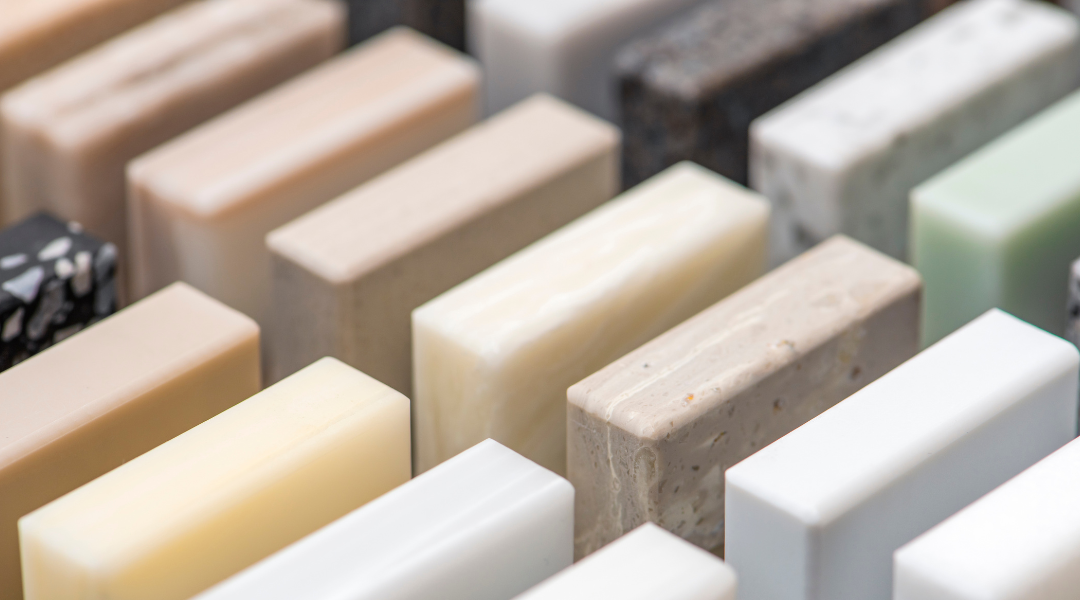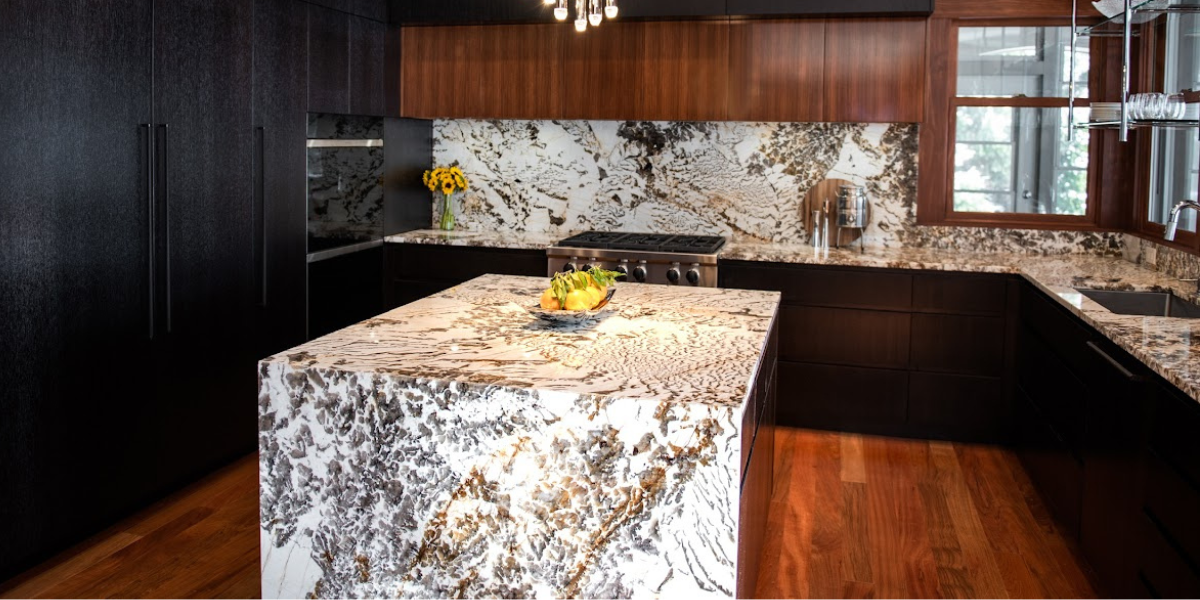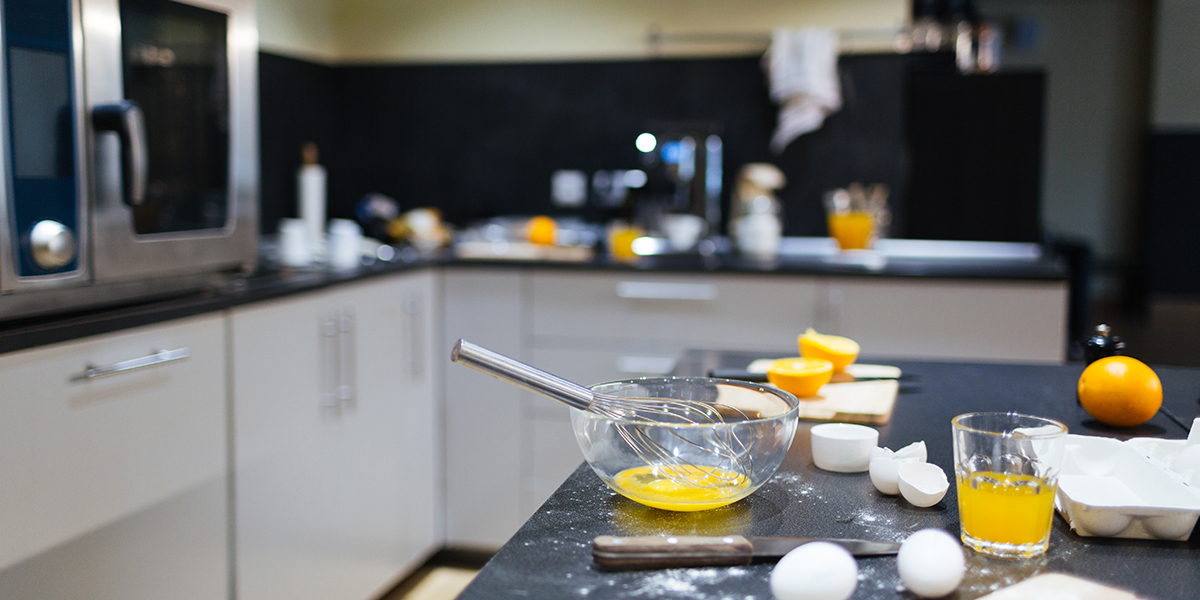Selecting the ideal countertops for your home requires careful consideration. Not only will they serve as a focal point in your space, they also play a functional role in your everyday life. Among the popular options available, porcelain and quartz countertops stand out as versatile and stunning choices. But when comparing porcelain countertops vs quartz, which is better? What are the differences? Let’s dig into porcelain countertops vs quartz to help you decide which material is right for your home.
Porcelain Countertops vs Quartz: The Basics
Porcelain
With their origin tracing back to the ancient Chinese and European civilizations, porcelain countertops have stood the test of time. Porcelain countertops are derived from ceramic materials. They have earned a reputation for beauty and durability. Created through a combination of natural clays and high temperatures, porcelain countertops offer plenty of different shades to suit any design aesthetic.
Quartz
Quartz countertops, on the other hand, are a fusion of natural quartzite, which has been ground down, and resin. Quartz countertops have gained popularity over the decades due to their exceptional beauty and durability. With a wide range of finishes and colors, quartz countertops offer endless possibilities for creating a modern and elegant space.

Quartz is an elegant and durable option.
Comparing the Two
Appearance
Quartz countertops exhibit a unique speckled appearance due to the combination of ground quartz and resin. They offer a variety of natural stone looks, such as the timeless elegance of white quartz or the contemporary appeal of black quartz. Quartz countertops offer multiple finishes, including polished, honed, or leathered, each providing a distinct look and feel along with plenty of edging options.
Porcelain countertops mainly consist of a layered silicate clay mineral known as kaolinite, resulting in many captivating colors when iron oxide impurities occur. The sought-after grays, blacks, whites, and browns in porcelain bring a touch of sophistication to any space. Porcelain comes in a glossy polished finish, matt, honed, and also leather finishes. They are also thinner and the veining is not seen thru at the edges, meaning your only choice for an edge profile is a squared mitered edge.
Durability
Quartz countertops are engineered to be virtually indestructible, with a higher threshold for scratches compared to porcelain countertops. They can withstand heavy use without showing signs of wear. That said, precautions should be taken to avoid direct contact with hot objects because high heat can cause cracking.
Porcelain countertops are also highly durable, and they are resistant to heat. However, they are more susceptible to chipping due to their lighter weight.
Stain Resistance and Maintenance
Because they are non-porous, quartz countertops are extremely water tolerant and therefore excel at stain resistance.
In comparison, porcelain has low porosity. This means they are very resistant to moisture like quartz.
Both materials require similar maintenance. Regular cleaning with a dampened microfiber cloth and non-abrasive cleanser will keep your countertops looking luxurious for years to come.
Porcelain Countertops vs Quartz: Which Will You Choose?
Choosing between porcelain countertops vs quartz depends on the functionality and aesthetics you expect from your countertops. While porcelain offers a timeless appeal and excellent durability, quartz provides the perfect balance of beauty, strength, and low maintenance. With a vast range of designs and finishes, quartz countertops offer the aesthetic benefits of natural stones without extensive upkeep.
Whatever you choose, ZStone Creations is here to help. We are proud to offer a high-quality selection of stunning countertop materials to elevate the elegance of your home. Visit our showroom or contact us to explore our luxury stone and find the perfect countertop for your space. Your dream kitchen or bathroom awaits!





